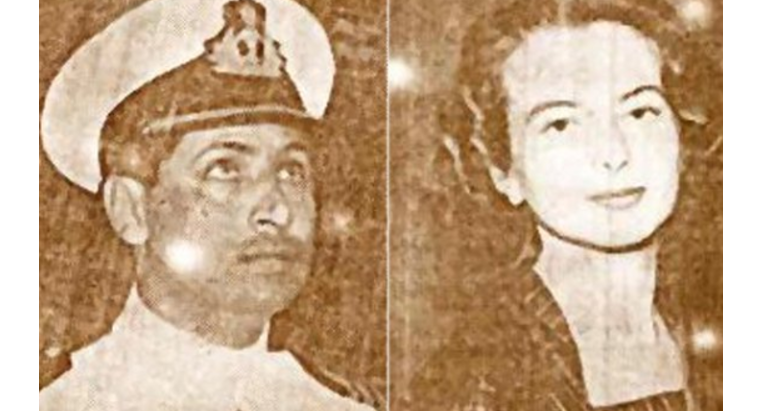The Nanavati Murder Trial That Changed Indian Law, Abolished Jury Trials
17-Apr-2024Despite his confession, a jury found Nanavati 'not guilty' of premeditated murder. However, this verdict was later overturned by the Bombay High Court.

OJ Simpson, once renowned for his prowess on the American football field, yet forever overshadowed by a high-profile murder trial, has passed away at the age of 76. He stood accused of the murder of his ex-wife and her male companion in a suburb of Los Angeles. The televised police pursuit of Simpson and the ensuing sensational trial, featuring prominent attorneys and allegations of racism, captivated millions of viewers.
His acquittal in October 1995, following nine months of courtroom drama, was met with incredulity by many Americans who had avidly followed every twist and turn, even debating intricate details such as the fit of a pair of gloves on the former athlete's hands.
In 1959, a case in India bore striking parallels to the OJ Simpson trial and garnered widespread attention: the KM Nanavati trial. Kawas Manekshaw Nanavati, an Indian Navy Commander, was charged with the murder of his wife's lover, Prem Ahuja.
Sylvia, Nanavati's wife, had admitted her affair with Ahuja to her husband while he was away on missions. Nanavati then dropped off his wife and children at a movie theater and proceeded to the Naval Base. Under false pretenses, he retrieved his pistol, loaded with six bullets, and headed to Prem Ahuja's residence.
Nanavati confronted Ahuja about his intentions and inquired whether he intended to marry Sylvia. When Ahuja refused, Nanavati fired three fatal shots, killing him on the spot.
Immediately after the incident, the Naval Commander went to a police station and confessed to the crime. He reiterated his confession in court, providing details of the murder plan.
Despite his confession, a jury found Nanavati 'not guilty' of premeditated murder. However, this verdict was later overturned by the Bombay High Court.
On March 11, 1960, the High Court convicted Nanavati of Ahuja's murder and sentenced him to life imprisonment. The sentence was swiftly suspended by the Governor of Bombay.
However, the Supreme Court reversed this decision, sending the Naval officer to prison. He was granted parole on health grounds in 1963 and subsequently pardoned by the new Bombay Governor and Jawaharlal Nehru's sister, Vijayalakshmi Pandit, in the following year.
Following his pardon, KM Nanavati relocated to Canada with Sylvia and their three children.
The Nanavati case, akin to OJ Simpson's trial, captured the public's and media's imagination. Its reverberations were felt for years, inspiring numerous books and films, including the 2016 movie 'Rustom,' starring Akshay Kumar, which explored the role of media in shaping the trial's outcome.
This trial marked the conclusion of jury trials in India, as the government promptly abolished them thereafter.







